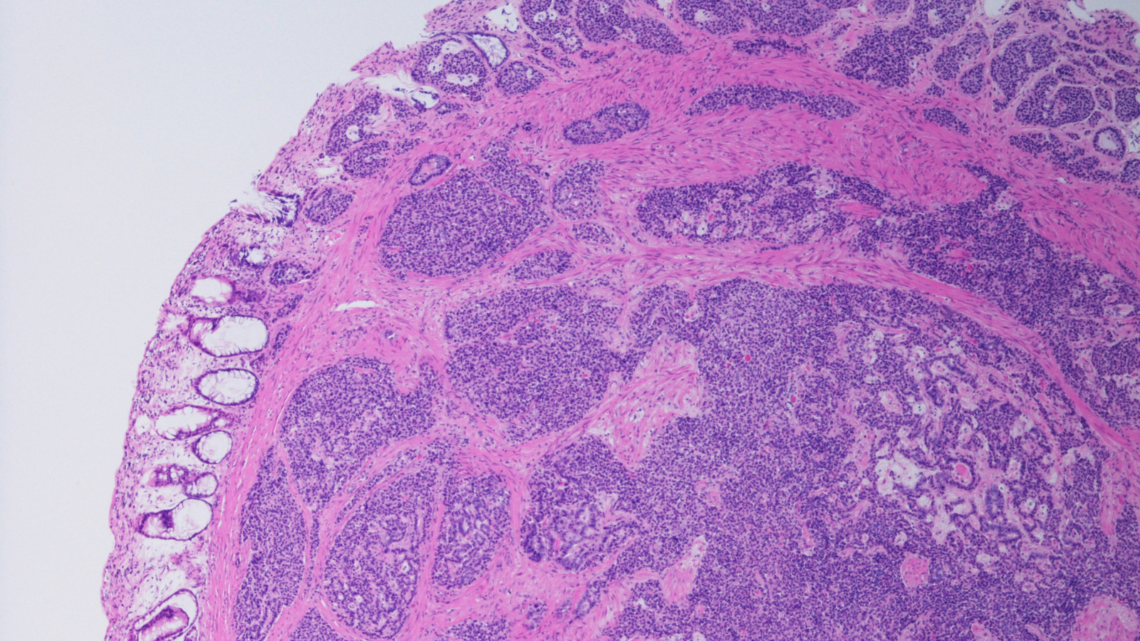Cancer
-
Understanding Myeloma: Challenges and Advances
Myeloma, the second most prevalent type of blood cancer in Canada, remains a largely unknown entity to the broader public, a fact that underscores a disconcerting gap in the collective awareness of a disease that affects a significant number of individuals each year. This form of cancer is distinguished by the aberrant behavior and unchecked proliferation of a specific kind of white blood cell known as the plasma cell. Plasma cells, originating in the bone marrow—a soft, spongy tissue residing within the cavities of bones—are instrumental to the human immune system. They are tasked with the vital function of fighting infections through the production of antibodies that target and neutralize…
-
Colorectal Cancer Awareness
Colorectal cancer, comprising cancers that affect the colon, rectum, or both, stands as a significant public health challenge globally. Often referred to as colon cancer or rectal cancer, depending on its origin, this malignancy is part of the broader category of cancers that influence the last segment of the gastrointestinal (digestive) system. The importance of raising awareness about colorectal cancer cannot be overstated, given its impact on society and the individuals it affects. This comprehensive discussion aims to shed light on the critical aspects of colorectal cancer, including its warning signs, treatment options, and the pivotal role of awareness in combating this disease. Colorectal cancer manifests through a variety of…
-
International Childhood Cancer Day
International Childhood Cancer Day, observed globally on February 15th each year, plays a pivotal role in amplifying awareness around the critical issue of childhood cancer. It’s a day earmarked for disseminating vital information, rallying support for the young warriors battling this daunting disease, and extending a hand of solidarity to the families navigating this challenging journey alongside their children. The essence of this day lies in its concerted efforts to underscore the imperative need for equitable, enhanced access to treatment and care for children afflicted with cancer across the globe, aiming to bridge disparities and foster a more inclusive health ecosystem. The significance of International Childhood Cancer Day cannot be…
-
The Canadian Battle Against Cancer
Cancer, a term that resonates with uncertainty and fear, has become an unavoidable reality for over 1.5 million Canadians, representing a significant public health challenge that permeates through every layer of society. This comprehensive exploration seeks to demystify cancer by delving into its nature, the substantial impact it has on individuals diagnosed with the disease, and the ripple effect on their loved ones. Furthermore, it highlights the significance of World Cancer Day, observed on February 4th, as a beacon of hope and solidarity in the fight against this ailment. The Complex Nature of Cancer Understanding cancer begins with recognizing it as a collection of related diseases characterized by the uncontrolled…
-
What is Medulloblastoma?
Medulloblastoma, a formidable adversary in the realm of brain cancers, has recently cast its shadow over a well-known family, touching the life of Isabella Strahan, the daughter of Michael Strahan, co-host on ABC’s ‘Good Morning America’ and former NFL player. This revelation not only spotlights Isabella’s personal battle but also brings to the forefront a critical understanding of Medulloblastoma, a condition that remains shrouded in complexity and challenges. At its core, Medulloblastoma is a type of brain tumour predominantly found in children, although its occurrence is not entirely exclusive to the younger population. It originates in the cerebellum, the part of the brain responsible for coordinating movement. This cancer, while…
-
Stomach Cancer in Canada
With an estimated 4,000 Canadians diagnosed with stomach cancer annually, understanding this disease is crucial for early detection, effective treatment, and improving patient outcomes. This article provides an extensive overview of stomach cancer, emphasizing its prevalence, causes, symptoms, diagnosis, treatment, and prevention strategies, tailored to the Canadian context. Understanding Stomach Cancer What is Stomach Cancer? Stomach cancer occurs when malignant cells form in the lining of the stomach. These cells can grow into a tumor and spread to other parts of the body. The disease is often categorized based on where it starts in the stomach and the type of cells that become cancerous. Types of Stomach Cancer Adenocarcinoma: The…
-
Understanding Ovarian Cancer
In the landscape of women’s health, ovarian cancer stands as a silent yet significant threat. Marked by its subtle onset and often elusive symptoms, this form of cancer poses a unique challenge for both patients and healthcare providers. As we approach the end of the year, it is estimated that around 3,100 Canadian women will have been diagnosed with ovarian cancer, highlighting its prevalence and the critical need for awareness and early detection strategies. Understanding Ovarian Cancer Ovarian cancer begins in the ovaries, which are part of the female reproductive system and are responsible for producing eggs, as well as estrogen and progesterone hormones. The complexity of this cancer lies…
-
Neuroendocrine Tumours
Neuroendocrine tumours (NETs) represent a spectrum of neoplastic diseases that arise from neuroendocrine cells, which are spread throughout various organ systems in the body. NETs are capable of producing peptides that can cause unique clinical syndromes; however, most are clinically silent until late presentation with mass effects or metastatic disease. Historically considered rare, NETs have now emerged as the fastest-growing class of cancers worldwide, accounting for about 2% of all cancer diagnoses. In Canada, the incidence of NETs has mirrored this global trend, with approximately 12,000 to 15,000 Canadians currently living with this condition. Despite growing awareness, the complexity of NETs poses significant challenges in terms of diagnosis and treatment.…
-
Breast Cancer Awareness Month
In Canada, 1 in 8 women will develop breast cancer in her lifetime. It is estimated that as many as 28,000 women are diagnosed with breast cancer each year. Fortunately, due to advancements in research that have helped to improve things like early detection and diagnosis, the current 5-year survival rate of breast cancer is 87% — and the death rate has dropped by 44% since the 1980s. However, because breast cancer continues to be one of the most commonly diagnosed types of cancer and the second-leading cause of cancer-related death among Canadian women, there’s still a lot more that can be done when it comes to raising awareness. It’s…
-
Prostate Cancer Awareness
Prostate cancer, often abbreviated as PCa, holds the unsettling title as the most common cancer among Canadian men. The statistics are striking: in 2023 alone, it’s forecasted that a staggering 24,700 men will be diagnosed with prostate cancer. What’s even more sobering is the reality that roughly 4,700 of these individuals will lose their battle to the disease. Delving deeper into these numbers reveals that approximately one in every eight Canadian men faces the likelihood of being diagnosed with prostate cancer during his lifetime. And when it comes to mortality rates, prostate cancer is responsible for about 3% of all deaths among Canadian men. These are not just numbers but…








